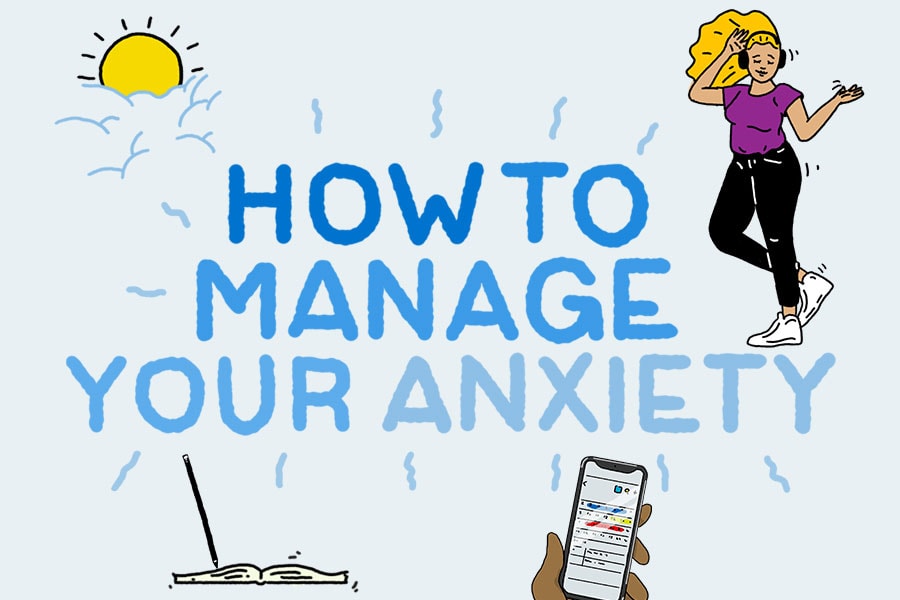Tips for dealing with stress and anxiety

The American Psychological Association takes a monthly pulse of the country in its “Stress in America” poll, and it’s finding that people are stressed and feeling anxious. The University of Nebraska-Lincoln has conducted research and found that not only do Americans report that politics have harmed their physical or mental health, but it has also resulted in emotional costs, including lost friendships. There is no better time than the present to take action to curb the stress and fear. It’s just a matter of knowing how to do it.
“Life throws a lot our way, including presidential debates, political rifts within families, fender benders, difficult dynamics with your boss/employees, migraines, and more,” explains Katie Sandler, personal development and career coach. “We cannot control all of those things that may come our way, but we can do things to protect ourselves by paying more attention to how we react to them.”
Sandler has helped many people who experience such issues as stress and anxiety, among other things. She focuses on a psychology technique referred to as positive reframing, which can help shift your mindset. It’s a technique that anyone can do and have success with. It starts with small choices that stack up throughout the day, and they ultimately make a world of difference.
Charles Swindoll once said that life is 10 percent what happens to you and 90 percent of how you react to it. If we remember that and gain control over how we react to stressors, we can have a better experience in which we feel less stress and anxiety.
Here are five things to do to respond, rather than react, to life and its stressors:
•Practice gratitude. Have gratitude for the day. Whether it’s a day off, a difficult workday, a time to socialize, or to get your chores done, take time to practice gratitude no matter what the day holds. Times are shifting like crazy, and we don’t know where we will be in a week, a month, a year. Slow down and simply be grateful for the day.
•Express compassion. Compassion and curiosity are key in life and especially during these unique times. But our fears of uncertainty are prevailing and making this practice a bit more difficult. Make a conscious decision to use your curiosity and compassion, to come off of autopilot and make choices in how to be a better person, a better community member, and a therefore build a better culture – a culture of compassion.
•Set an intention. Take the time to set an intention for yourself and those around you, including to be present and kind. In this political climate, set an intention to understand with compassion. You don’t always need to agree; you won’t always “like or love” where you are today or what your life is like. But you can control your reactions. You have the power to respond versus react, and create a powerful shift at any moment.
•Connect with your purpose. It is during these times of discomfort and distraction that connecting with your purpose becomes critical. Explore it, remember it, honor it, and write it out if it feels unclear. If you don’t know your purpose, reach out for assistance. Your purpose may be helping others scale businesses because you love seeing them empowered and out of financial duress. It could be to share your learnings and teachings with others. It can be anything, and you’ll know it when you feel it. Check in with your purpose today, and stay on track.
•Live mindfully. When we stop living on autopilot, just going through the motions, we can tap into mindful, centered living. Having anxiety about the future will only rob you of today’s peace. Instead, focus on living each day as it comes, looking to make it the best day possible.
“When people experience difficult times like we as a country are now, it’s important to be purposeful in seeking solutions and beneficial ways to respond, rather than react,” added Sandler. “Climates like we have now are going to exist no matter how we react to them, but when we take a healthy and mindful approach to dealing with it, we will can not only survive, but we can thrive.”
To learn more about Sandler, visit https://katiesandler.com/.
Provided information



